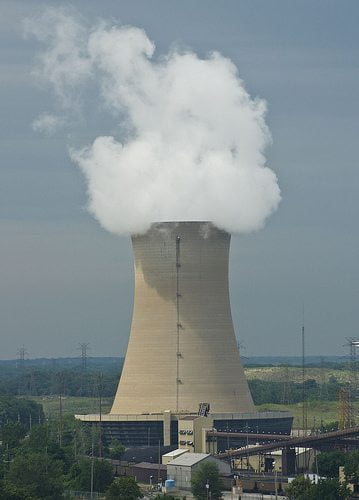

Energy
Nuclear energy should be part of COP21 agreement that drives meaningful reductions in carbon
Nuclear for Climate, a global initiative supported by more than 140 regional and national nuclear associations and technical societies, said in a new position paper today that a significant expansion of nuclear energy is necessary for the world to achieve an 80 percent reduction in greenhouse gas emissions by 2050.
The position paper, entitled “Nuclear is part of the solution for fighting climate change” urges negotiators at the United Nations Framework Convention on Climate Change Conference of the Parties (COP21) to develop an achievable agreement for the reduction of greenhouse gasses which ensure(s) that the right of countries to choose nuclear energy in order to reduce greenhouse gas emissions while meeting their energy and development objectives. This choice should not be prejudiced against in any way by the new UNFCCC protocols, specifically with regards to access to climate funding mechanisms such as Green Climate Funds.
“We strongly believe the world must use all available low-carbon energy sources, including nuclear energy, if it is to mitigate the effects of climate change and reduce greenhouse gas emissions while meeting development goals and not impeding on economic growth,” said Valérie Faudon, director-general at the French Nuclear Energy Society (SFEN).
“Nuclear energy is a proven low-carbon energy technology that makes a profound contribution to preventing greenhouses gases today and will be vital to meeting any agreement reached in Paris,” said Eugene Grecheck, president of the American Nuclear Society (ANS). “Multiple studies have shown that a significant expansion of nuclear energy is needed to achieve an 80 percent reduction in emissions by 2050. The COP21 agreement should reflect this research and support developing nations wishing to make nuclear part of their energy/climate strategy.”
The International Panel on Climate Change (IPCC) identifies three types of carbon-free electricity: renewables, nuclear energy and fossil fuels with carbon capture and storage. According to the panel there is a limited amount of cumulative emissions that cannot be exceeded if we are to limit average global warming to 2°C. The IPCC estimates that we have already reached nearly two-thirds of this amount and that significant greenhouse gas reductions are needed now.
“All countries should have the right to choose nuclear energy to reduce greenhouse gas emissions and meet their national clean energy objectives,” said Jean-Pol Poncelet, secretary general of the European Nuclear Society. “All possible solutions have to be carefully considered and all ideologically or doctrinally driven decisions avoided. States should recognise nuclear energy as a greenhouse gas-reducing technology necessary for us to achieve the sustainability we want.”
“India is poised for a large expansion in nuclear power to supply a quarter of the country’s electricity, to help achieve the goal of meeting increasing electricity needs, while mitigating climate change at the same time” said RK Singh, Secretary of the Indian Nuclear Society.
Globally, 438 reactors generate around 11 percent of the world’s electricity, with almost no greenhouse gas emissions. In the European Union, nuclear energy accounts for more than half of all low-carbon electricity. In the United States, it accounts for 63 percent of all low-carbon electricity.
Going forward, developed and developing countries alike will expand nuclear energy as part of their transition to a lower carbon electrical grid. For exa
































